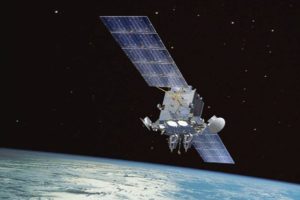The World Space Week Association (WSWA) has called on the UN Committee Office on the Peaceful Uses of Outer Space (UNCOPUOS) member states to deploy space, science technology in addressing climate change issues.

Ms Alma Okpalefe, Executive Director of WSWA, made the call in an interview in commemoration of the World Space Week (WSW) on Friday, October 11, 2024, in Abuja.
The WSW, usually celebrated by more than 95 space faring countries across the globe from Oct. 4 to Oct. 10 annually, had “Space and Climate Change’’ as its 2024 theme.
Okpalefe acknowledged climate change as one of the most critical global challenges that required global efforts and by deploying space-related data, it could drive climate change resilience.
“The space sector contributes greatly to the global efforts to mitigate climate change and the UNCOPUOS continues to champion policy initiatives that address climate change.
“They champion that through their Space4 Climate Action initiative which offers wide-spread capacity building resources, they can inform better understanding of the climate challenge and the development of strategic responses.
“In addition to having access to these and other resources, Nigeria is also a member of UNCOPUOS where fundamental matters such as these are deliberated and strategies developed.
“Data is instrumental for the mitigation of climate change, and space data such as earth observation data is therefore priceless.’’
She said that the year’s celebration was not only to highlight the challenge but to further highlight how space technology could mitigate climate change.
“By igniting the world in a discourse about space, more specifically, space and climate, we strive to provide fuel for action, through partnerships, collaborations, awareness on the use of space tech for socio-economic development.’’
The executive director said that Nigeria had various space-enabled capabilities, such as the Earth Observation Satellite, communication satellite and geo-spatial positioning capabilities.
According to her, the support for development of applications using the data, connectivity and backbone derived from these capabilities can drive climate change resilience.
She said that Nigeria, being at the forefront of space activities in Africa, had lots of programmes on-going, which were taking time to be evident.
Okpalefe added that awareness was key to educating the people on the benefits of space-dependent technologies.
“Space tech is an enabler; it needs to be more widely integrated into various sectoral initiatives, ranging from agriculture to transportation and other sectors,’’ he said.
Okpalefe said that the occasion of the WSW as declared by the UN, was time to create more awareness about space to a wider audience.
According to her, countries with space programmes have utilised this celebration to spread awareness and gain traction for their programmes, while emerging space nations may use it as opportunity to birth a space programme.
WSW is marked to celebrate the inauguration of the first artificial earth satellite in space, Sputnik 1, on Oct. 4, 1957, and the signing of the Outer Space Treaty on Oct. 10, 1967.
By Ijeoma Olorunfemi
